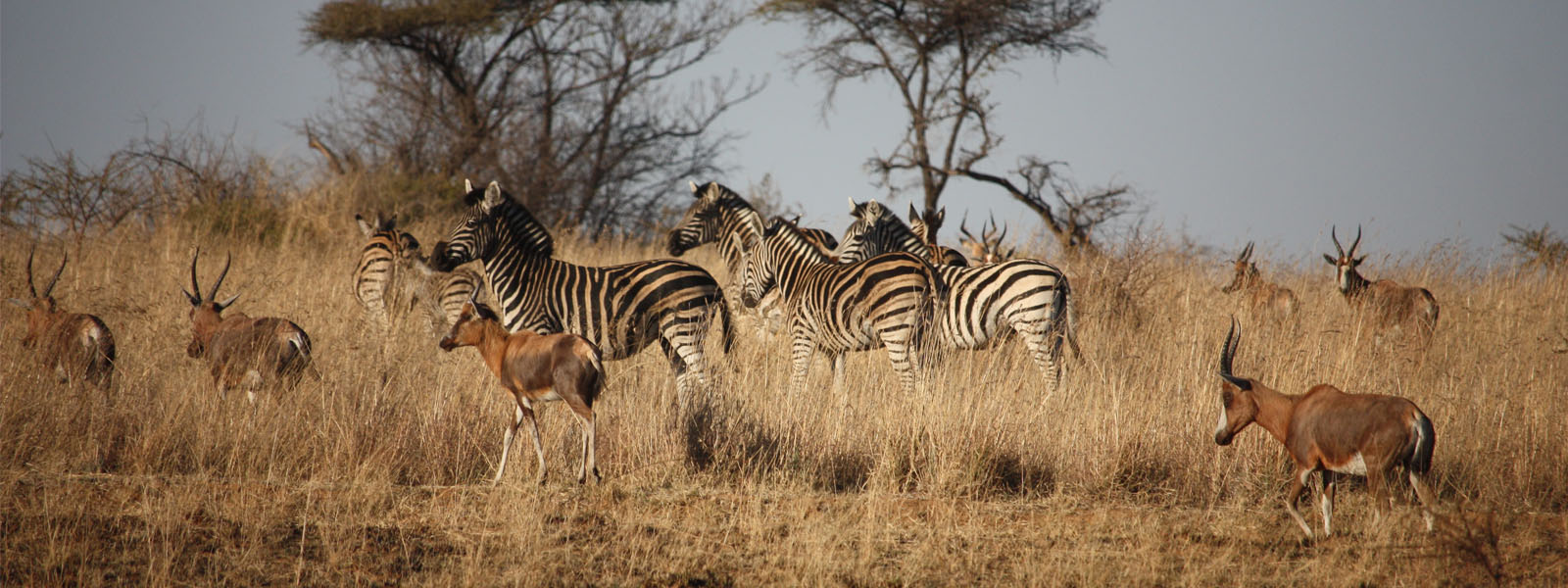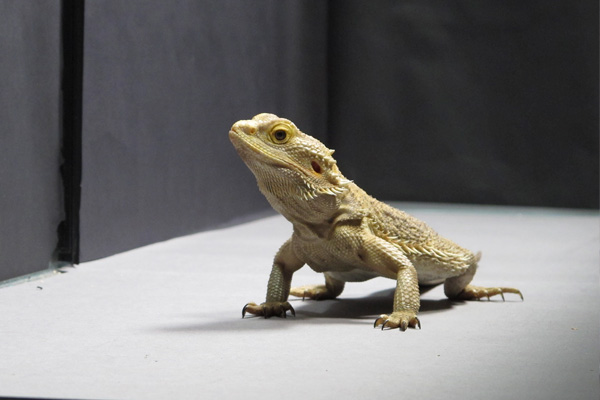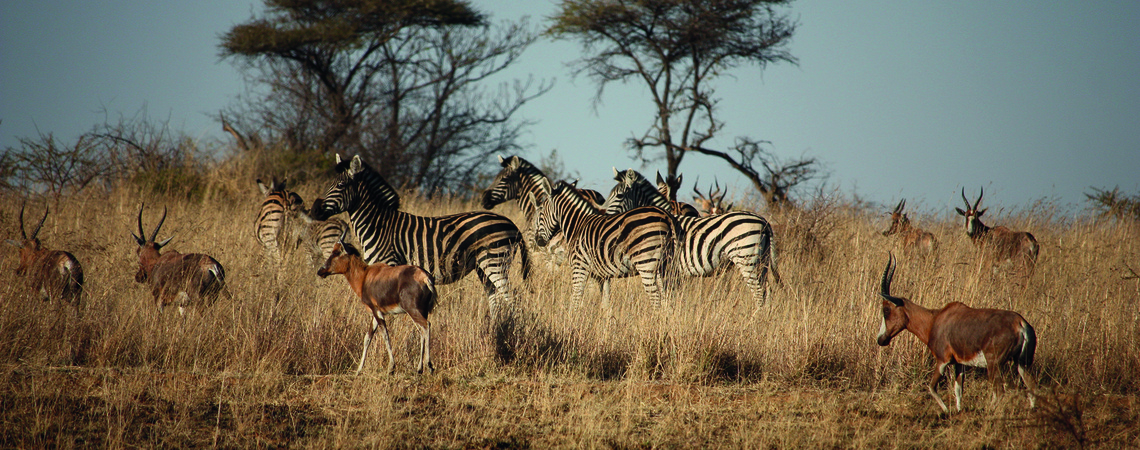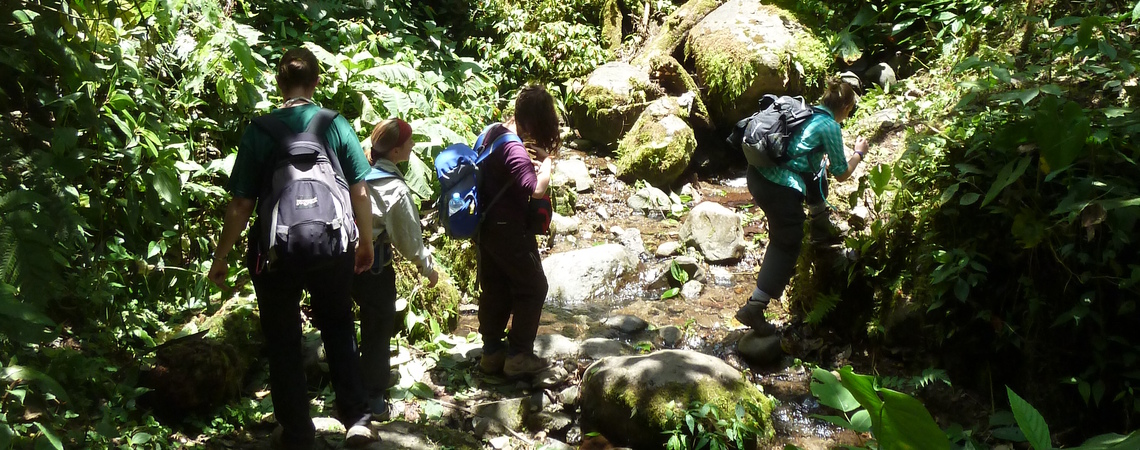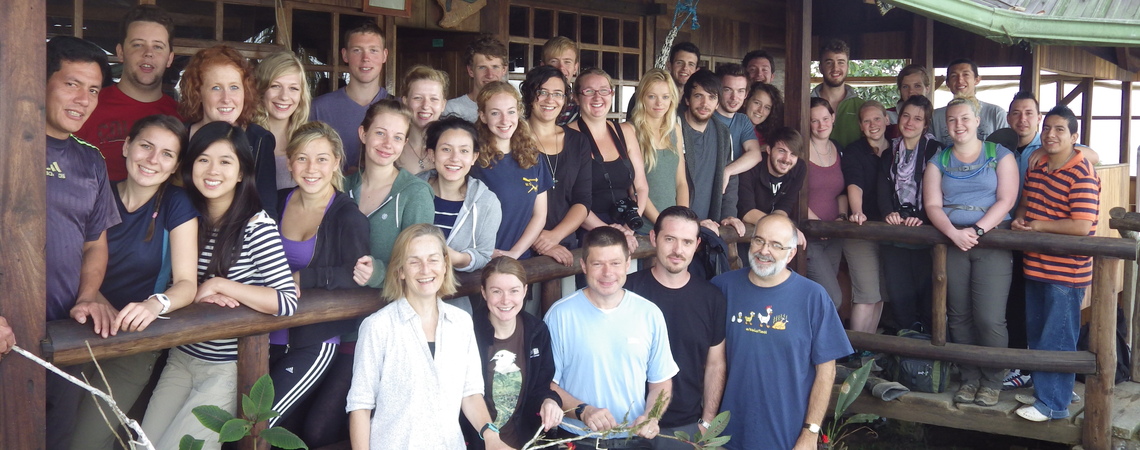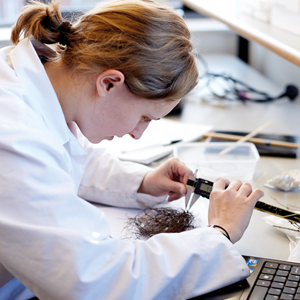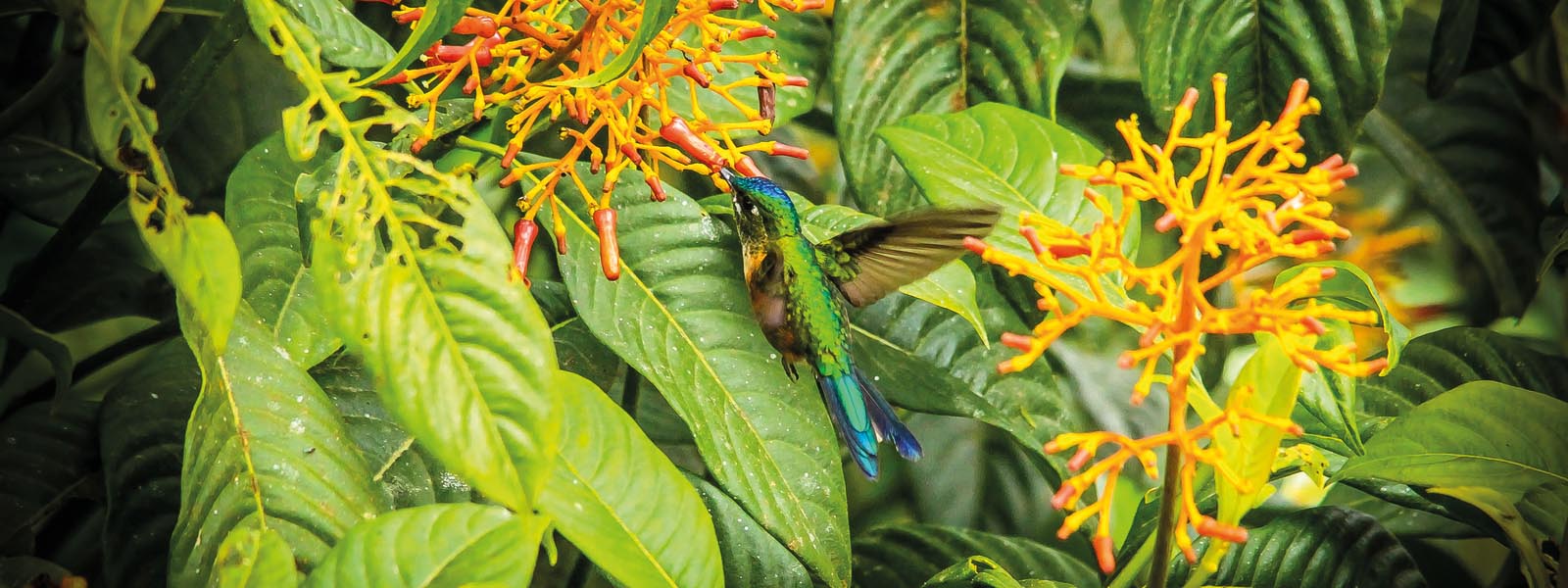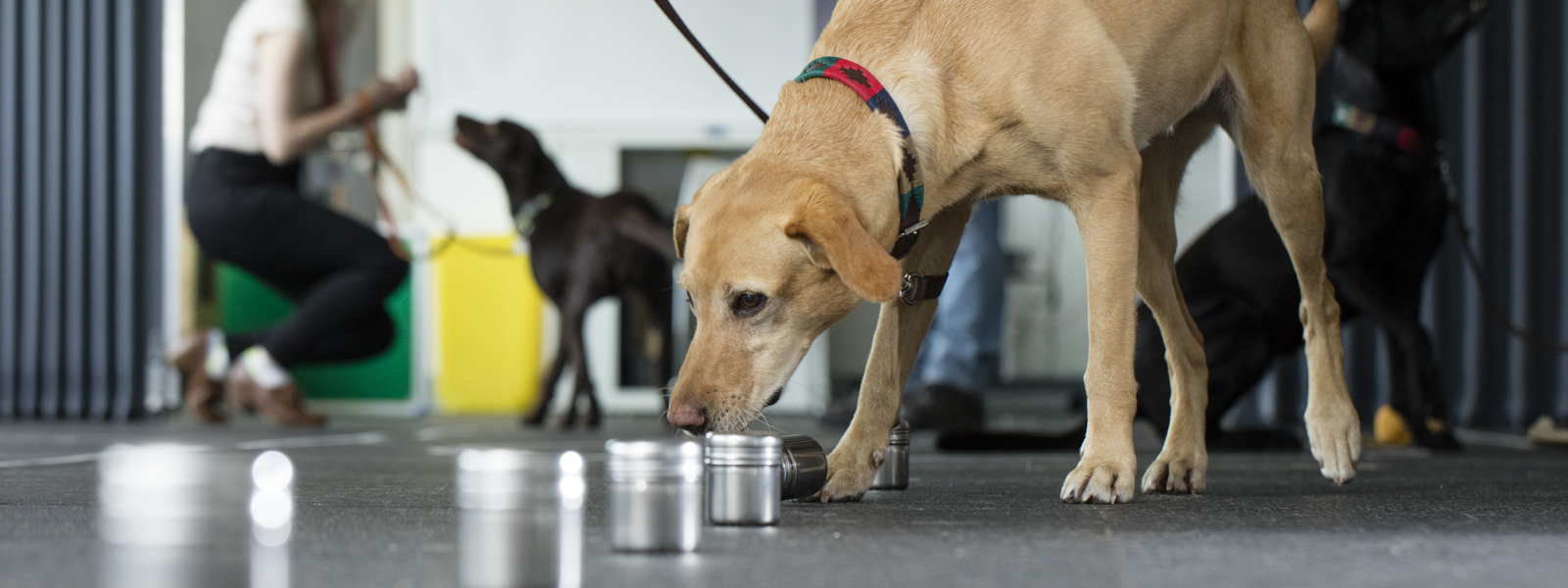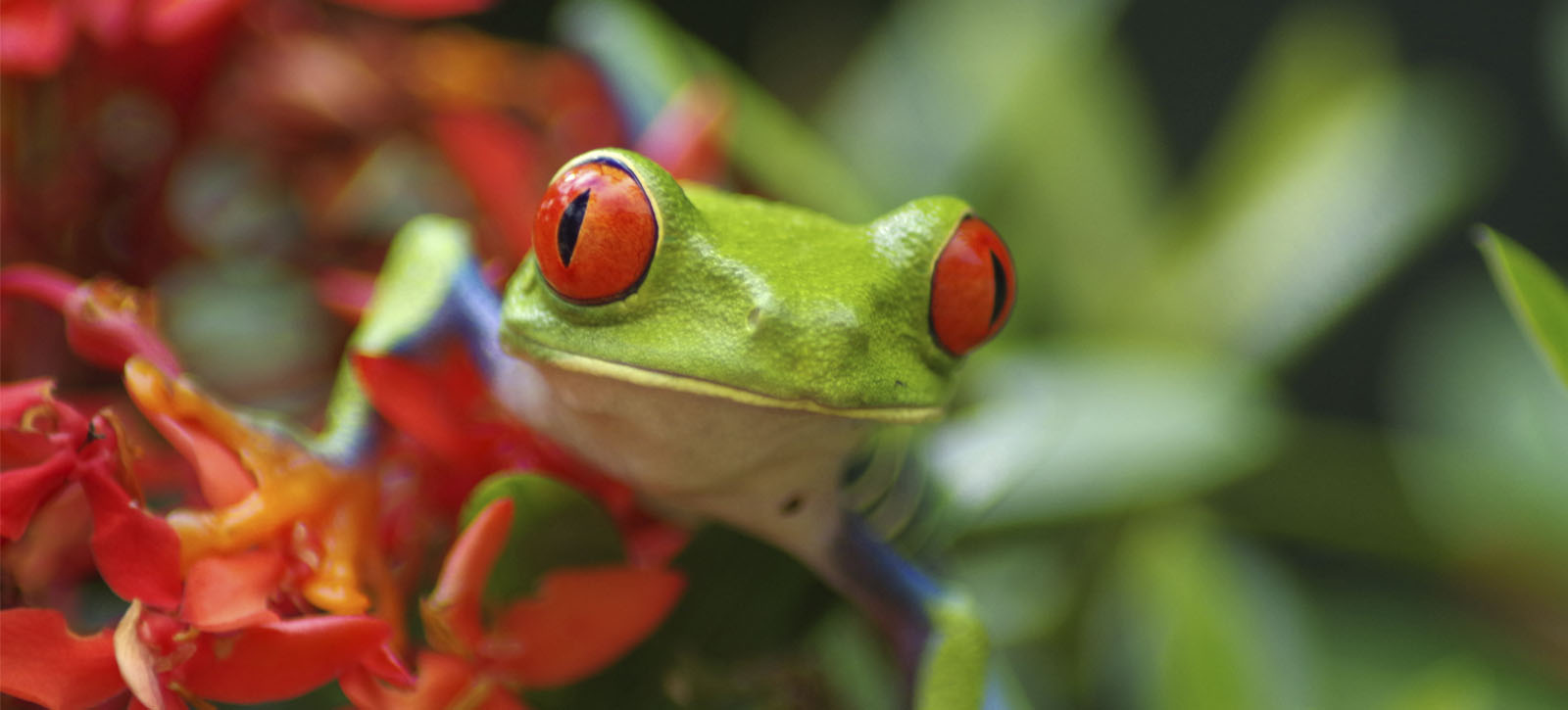Module Overview
The module aims to provide an understanding of the control of infectious disease in companion and animals, livestock species and wildlife. The module will explore practical control measures for diseases of animals, building explicitly on the knowledge and understanding gained in other modules. Particular areas of study will include:
- Nature and examples of important infectious pathogens
- Host Responses to Infectious Pathogens
- Control of disease at the level of the individual and population
- Manipulation of transmission dynamics
- Biosecurity and husbandry
- Treatment of disease
- Breeding or engineering genetically resistant animals
- Vaccination and design of novel vaccines.
These topics will be addressed in a holistic way that encourages students to be able to design and implement control strategies for known and emerging diseases. This ability will be explicitly tested in coursework and an oral examination.
Module Overview
In this module, students undertake an independent programme of research under supervision from a member of staff. It provides students with an opportunity to demonstrate original and critical thought, as well as to build discipline-specific research and project-management skills.
A wide range of subject expertise exists within the School, and students are expected to work on a project that is relevant to their programme of study. Under the guidance of a supervisor, students will review the literature, identify a research question/aim and objectives, and design a programme of research respectively. Students will be expected to manage the project and work in a safe and ethical manner, which will include undergoing training in and engaging with obtaining relevant ethical approval and risk assessment. Students will collect and analyse data, record their activities and research methodology and results in a “lab book”/ equivalent robust means of recording.
We currently offer projects in the laboratory (wet or animal) or field, projects that involve data analysis, literature research, educational research, science communication research and market research. Students may work individually or in groups addressing similar questions, but must write up individually. The findings of the research will be written up and presented orally. The conduct and performance of the student as a research apprentice will be assessed.
Module Overview
Our understanding of human disease is constantly evolving and this increased knowledge is presenting new opportunities to better therapeutically target and treat these diseases. As such, this module will focus on investigating the latest cutting-edge treatments being used by the NHS now and into the future to treat disease, discuss the ethics associated with bringing these into practice, evaluate the successfulness and limitation of these approaches, and explore where future development is needed to fully realise their potential.
Module Overview
This module explores the scientific study of animal cognition and welfare, with particular attention focused on experimental design, methodological considerations, and interpretation. It will cover the objective assessment of animal cognition and welfare with research examples from both wild and captive animals.
Module Overview
The blood sciences module will provide a deep understanding of this emerging, mixed-disciplinary field incorporating areas including clinical biochemistry, haematology and blood transfusion. This module will develop knowledge of the role of clinical biochemistry and immunology laboratories in the functional diagnosis and monitoring of endocrine function, allergy and autoimmunity. In addition, you will gain an understanding of the different haemopoietic systems within the body and the techniques used within NHS haematology laboratories to monitor these. A range of diagnoses that are enabled through the analysis of blood will be explored, including erythrocyte disorders, haemoglobinopathies, coagulation disorders and leukaemia. We will also discuss the role of transfusion in both treatment and management of diseases. Specific focus will be placed on the importance of blood group matching, donor selection, and blood processing/testing. Furthermore, we will also discuss immunohaematology and techniques used for detection and identification of antigens and antibodies; to enable students to evaluate adverse transfusion effects as well as the transfusion-transmitted diseases.
Module Overview
This module provides an overview of the role of cellular pathology in the diagnosis and monitoring of malignant and non-malignant diseases. This module intends to evaluate the normal and abnormal histology and ultra-structural features of human cells and tissues. The module enables students to appraise malignant and non-malignant cytology, and critically evaluate the role of multiple research and diagnostic techniques; ie. electron microscope and immunocytochemistry in pathological differential diagnosis. The module aims to enable students to understand and critically evaluate different methodologies of cancer treatment, how cancer drug resistance evolves, and investigation of the role of personalised medicine for optimum patient treatment/outcomes.
Module Overview
The module provides an overview of the applications of genetics and its ethical and social considerations with an introduction to ethical philosophy. This module also intends to discuss genetic counseling, diagnosis of genetic disease, carrier detection, and pre-symptomatic testing. The module enables students to evaluate population screening, and community genetics for single gene and chromosome disorders and also the ethical and social considerations of the understanding of the human genome, the treatment of genetic diseases, gene therapy, and the ethics of experimental animal use.
Module Overview
This module will build on the knowledge and understanding of microbiology and animal disease gained previously at L2. The module aims to develop students’ understanding of the One Health approach to human and veterinary diseases, including protecting animal and human populations from infectious agents recently introduced through cross species transmission.
Module Overview
This module provides students with the opportunity to investigate biological phenomena in the field at an overseas location. Students work in groups, guided by staff, to develop and test hypotheses allowing them to understand more about biological processes operating within the study area. They are encouraged to view the ecosystem within the wider context of the anthropogenic impacts being imposed on it. This module is optional and courses run subject to sufficient student demand.
Module Overview
At the interface between Earth and Life Sciences, Palaeobiology is the study of all aspects of the biology of extinct biota and their relations to the physical environments in which they lived. The discipline documents and explains patterns and processes governing past Life, and is key to our understanding of evolution in deep time and up to the present. Fossils are the currency of Palaeobiology. Their unique and fundamental contribution is their ability to provide measurable models of anatomical, functional, and ecological change over millions of years of evolution.
Natural selection theory predicts that organism diversity results from species interacting with each other and with their environments. Consequently, fossils are the natural “time capsules” preserving the historical record of faunal and floral successions on our planet. This record unravels the pathways through which traits observed in extant organisms are selected for, elucidates models of biodiversity rises and falls, and casts light on the complex relationships between the geosphere and the biosphere. Palaeobiology tackles some of the most challenging and engaging topics of modern biology, including the emergence of biodiversity, patterns of recovery, and expansion of ecosystems and species in the aftermath of profound crises (such as mass extinctions), and the interplay between originations and extinctions in shaping the Tree of Life.
This module aims to enable students to comprehend the thrust and scope of fossil-based research, progressing from basic observations to formulation of complex macro-evolutionary inference. Palaeobiology is eminently interdisciplinary, absorbing concepts and methodologies from numerous other fields and providing tools and knowledge of wide use to other biologists, particularly those interested in tempo and mode of evolution and the comparative method.
Module Overview
The impact of parasites to the health, welfare, and productivity of animals remains one of the most important issues in veterinary biology. A detailed understanding of the biology and epidemiology of parasites and the association they have with their hosts is vital in protecting and improving animal’s health and welfare. This module aims to provide a theoretical background for understanding the specialised features that parasites have developed to adapt to their host and transmit between hosts, the diseases which result, and advances in treatment and prevention of infection. Students can also learn analytical laboratory methods for the identification of different types of ecto- and endoparasites. Case studies will be used to illustrate how the current advances in research are applied to understand and inform the epidemiology, control, and prevention of parasite mediated disease in animals and monitor emergent diseases globally and within the UK.

